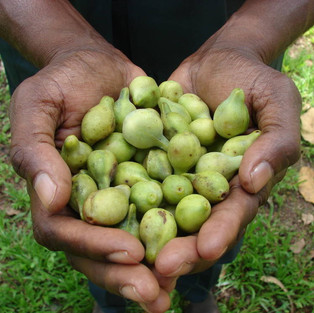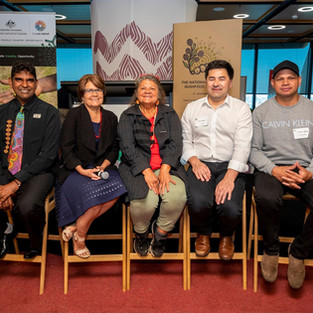- Mayi Harvests Native Food

- Nov 27, 2019
- 2 min read
Updated: Dec 21, 2019
A Kimberley traditional owner has shared the success story of an alliance of Kakadu plum producers on a national stage, at the inaugural National Indigenous Bush Food Symposium in Sydney.

Broome woman Pat Torres told the story of the Northern Australia Aboriginal Kakadu Plum Alliance, and how it became one of the largest traditional owner-led bush food supply chains in the country.
Formed in August last year, NAAKPA is made up of eight Aboriginal-owned enterprises from across the Kimberley and NT growing Kakadu plums or gubinge, as it's known in WA.
Ms Torres has been involved in the bush food sector for 30 years.
She said the alliance had provided structure and much needed support to Indigenous enterprises involved in the industry.
“As small individual enterprises, we didn’t have the ability to guarantee supply or be responsive to demand, but we now have a coordinated network and we can fill orders as a group,” she said.
“But for us it’s not just a commercial commodity, harvesting our bush foods is a way to maintain culture and preserve our identity.

“The main reason NAAKPA has been successful is because it’s led by Aboriginal people; we make the decisions because we have the traditional knowledge.”
Gubinge has the highest vitamin C content of any fruit, and has been used for thousands of years by Aboriginal people as a traditional food and medicine.
Almost 400 Indigenous people, mostly women, were involved in harvesting the fruit last financial year, providing employment opportunities and financial benefits for their communities.
In their first year, NAAKPA enterprises far exceeded expectations, harvesting more than 20 tonnes of whole fruit, with an estimated farm gate value of $600,000.
The bush food market is currently valued at $20 million annually, but it is estimated that Aboriginal and Torres Strait Islander people make up only 1-2% of the market presence.
The symposium, funded by the Indigenous Land and Sea Corporation, aims to increase Indigenous participation in the Australian bush foods industry.
ILSC chairman Eddie Fry said the organisation was keen to continue to assist Indigenous groups capture a greater percent of the market presence.
“The ILSC believes it is very important for Aboriginal and Torres Strait Islander people to understand the value of their cultural knowledge, and we look forward to seeing an increase in successful commercial ventures which are owned and operated by Indigenous people.”
The symposium runs across November 27 and 28.












Comments